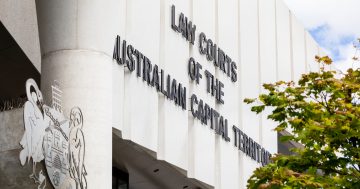Barbara Booth* says that making a will is an important way to ensure your money and assets are passed on according to your wishes.
 Your will has the important role of ensuring your wealth and assets are passed on to your beneficiaries in the way you would like.
Your will has the important role of ensuring your wealth and assets are passed on to your beneficiaries in the way you would like.
In spite of this, around half of the clients I see haven’t made a will.
If you’re one of them, or you need to update yours due to a change of circumstances – you’ve divorced or married again, or a beneficiary has passed away – you can make a new will with a public or private trustee or your solicitor.
What a will should include
Although a will sets out how most of what you own will be distributed, it won’t cover everything.
Your assets are considered to be estate or non-estate in nature and its only estate assets that can be transferred in your will.
Examples of these include cash, shares, property and other assets owned in your name or as tenants in common.
Nominating beneficiaries for super assets
Money held in super and your super benefits are non-estate assets. So you’ll need to make arrangements outside of your will to make sure your preferred beneficiaries receive these assets after you die.
If your super is held in an accumulation fund, there are generally two different types of nominations that can provide certainty.
These nominations are a written direction to the trustee of your super fund, detailing who will receive your benefit and in what proportions.
Under super laws you can nominate one or more of your dependents – spouse and de facto partner, any child, including step and adopted children, financial dependents, inter-dependents and/or the legal representative of your estate.
A binding death benefit must be reviewed every three years to stay in effect.
A non-lapsing nomination on the other hand, does not need to be reviewed.
The trustee must agree to the terms of the nomination and will take into consideration any change of circumstances– such as divorce or separation – after the nomination is made.
With a non-binding nomination, the super fund trustee still has discretion as to who will receive your benefit.
They will review your personal circumstances and take your nomination into account before making their recommendation.
If you don’t make any kind of nomination, assets will be distributed at the discretion of the super fund trustee, in line with superannuation law.
No nominations for defined benefit schemes
All defined benefit schemes have their own rules, but it’s usually the case that members cannot nominate a beneficiary.
This means your death benefit is paid according to the legislation for your scheme.
For most schemes where a pension is paid on retirement, a reversionary benefit arrangement applies, enabling your spouse/partner or dependents to continue receiving your pension when you die.
If there is no spouse or dependent, then a minimum lump sum benefit amount may be paid to your estate to be distributed through your will.
So if you’re planning to take a lifetime pension from your defined benefit scheme, it’s important to consider your current state of health and expected longevity.
Your pension benefit will revert to your spouse/partner or dependent children when you die and perhaps that’s the way you want it.
But if you’d prefer a different beneficiary to receive your super assets, you may need to think about transferring these assets outside of super or taking a greater part of your benefit as a lump sum.
And if there is no will…
If you die intestate (without a will) your assets will be distributed according to the intestacy laws for your State or Territory.
These laws will not take into account the state of relationships between family members or any obligations you may have to provide for a beneficiary who falls outside of these laws.
In these cases, beneficiaries and family members may request changes under the relevant state family provisions legislation.
Seeking professional advice when making estate planning provisions is crucial in ensuring you make the right decisions about your estate.
Take the next step
With the right help, planning for your retirement is easier than you think. For more expert tips, visit the StatePlus website at this PS News link.
* Barbara Booth is a registered financial adviser with StatePlus and can be contacted at [email protected].

StatePlus, formerly known as State Super Financial Services, is one of Australia’s leading providers of financial planning. Since 1990, our retirement experts have provided life changing financial advice to public sector employees and their families. With a StatePlus planner by your side, you can feel confident about reaching your financial goals to live the retirement you really want.
This article was published in December 2018. The information in this article is current at the time of writing the article. This is general information only and does not take into account your personal objectives, financial situation or needs. It is important to seek financial and taxation advice that takes into account your personal objectives, financial situation and needs before making any decisions based on this information.











